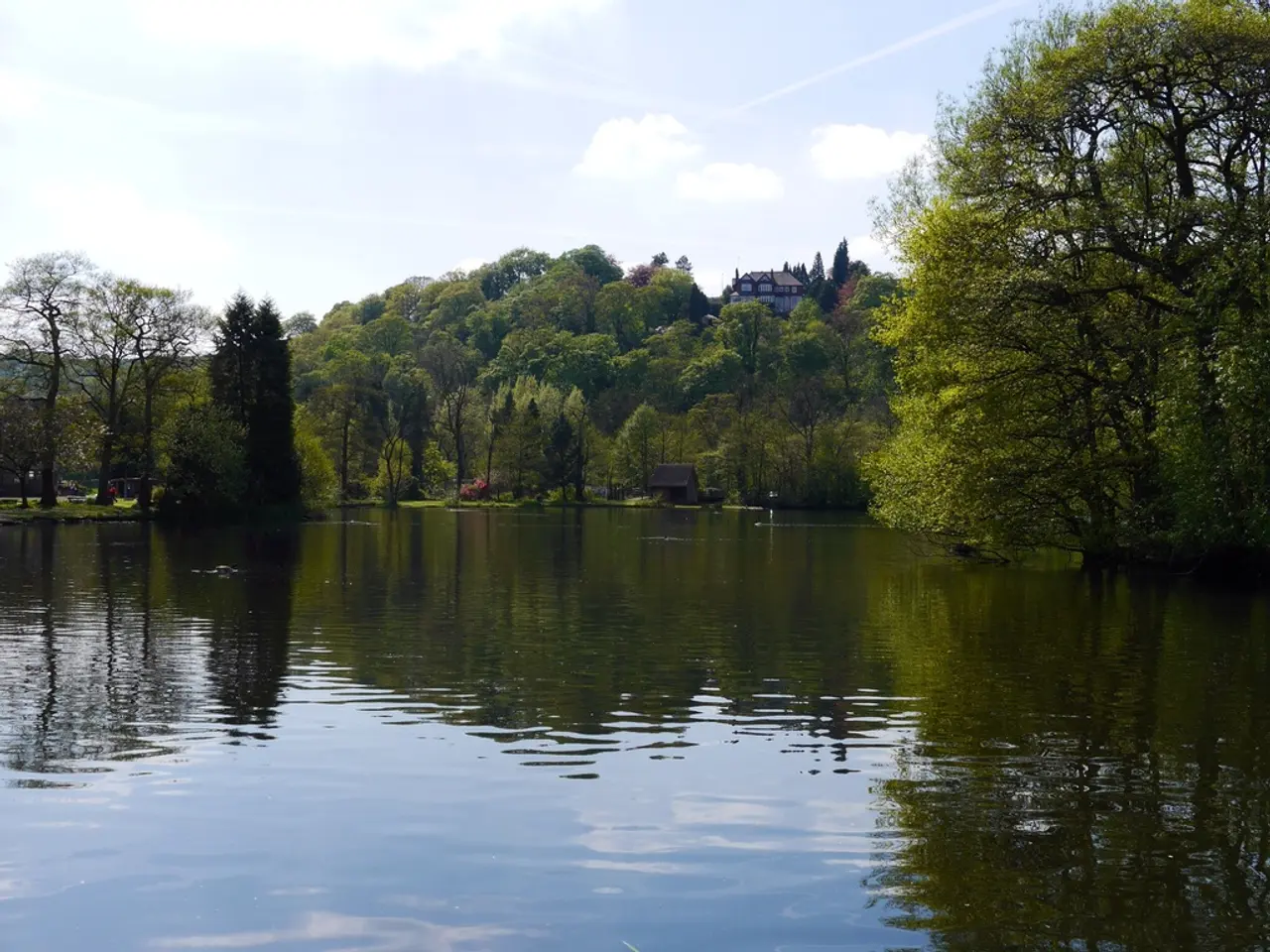Pollution emergencies at England's renowned lake demand immediate intervention
In a recent report, it has been revealed that some parts of Windermere, the largest natural lake in England's Lake District, have poor standards of bathing water quality, particularly during the summer months when the lake is widely used for swimming and watersports [1][2][3][4].
The study, conducted by the Freshwater Biological Association (FBA) and Lancaster University, collected over 1,000 water samples across more than 110 locations, many never before tested [1][2][3][4]. The comprehensive monitoring through the Big Windermere Survey has generated the most spatially detailed dataset, showing "poor" water quality results, with high concentrations of phosphorus and harmful bacteria such as E. coli and Intestinal Enterococci [1][2][3][4].
To address this issue, the Big Windermere Survey proposes a four-step plan. The first priority is to identify and address the sources of nutrient pollution and bacterial contamination, focusing on wastewater, agricultural runoff, and sewage discharges as primary contributors to phosphorus and bacterial hotspots [1][4]. Urgent remediation of pollution hotspots, especially those that cause poor bathing water quality during peak visitor seasons, is also crucial [1][4].
Additionally, the report urges increased investment and enforcement of environmental regulations to ensure sources of pollution are controlled and reduced effectively [1][4]. Expansion of water quality monitoring, particularly in areas used for recreational activities, is also recommended to better track changes and identify emerging issues [1][4].
The government has previously pledged to "clean up Windermere," but the latest survey findings stress the need for decisive action to prevent ongoing ecological damage and to safeguard public health, as well as to preserve the lake’s rare species and its importance to the local economy and tourism [2][4].
It is estimated that approximately seven million people visit Windermere annually, drawn by its stunning scenery and rich cultural heritage [5]. With such a significant number of visitors, it is essential that action is taken to improve the water quality and ensure the lake remains a safe and enjoyable destination for all.
The Big Windermere Survey's summary report was released on Tuesday [6]. Concerns over pollution from wastewater, farming, and sewage in Windermere have grown in recent years, and it is hoped that this report will provide a clear path forward towards improving the lake's water quality for the benefit of both the environment and the local community.
References:
- Big Windermere Survey
- Guardian article
- BBC News article
- Freshwater Biological Association article
- Visit Lake District article
- Big Windermere Survey summary report
Read also:
- Apparition's Significance and its Delivered Messages - as discussed by Sensenmann
- Explored the Popular Health Assessment with a Queue of 100,000 Aspiring Participants - Here's My Unadulterated Opinion
- Hearing impairment condition: Recognizing symptoms and management approaches
- Exploring Recurring Actions in Mature Individuals: An Analysis of Persistent Actions in Adults' Daily Lives





